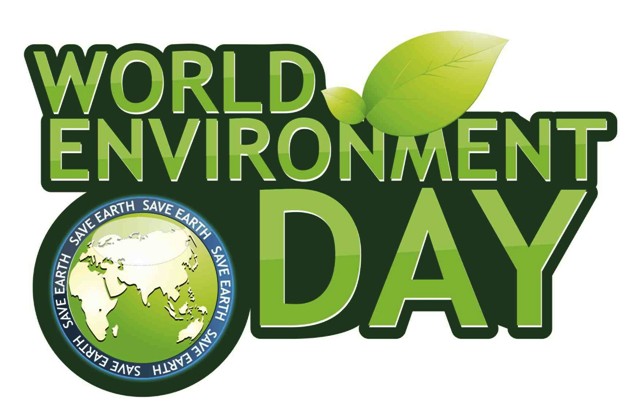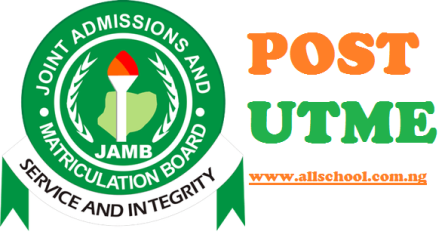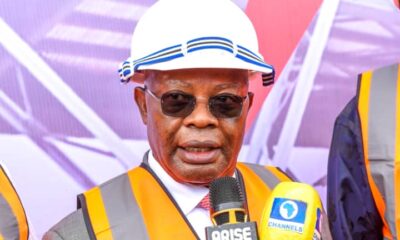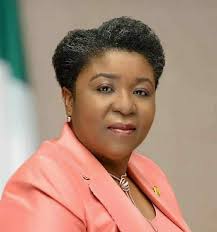Editorial
For Credible Rivers LG Polls
All looks set for the conduct of the Rivers State local government election scheduled to take place tomorrow in the 23 local government areas of the state. A total of 18 political parties will vie for various council positions in the polls to be conducted on Saturday. The Rivers State Independent Electoral Commission (RSIEC) had initially listed 19 political parties for the election, but the Peoples Democratic Party (PDP) discontinued the contest. Chief Emeka Beke’s faction of the All Progressives Congress (APC) has said that it will participate in the ballot.
Ahead of tomorrow’s council election, various lawsuits have resulted in conflicting rulings about how the election should be conducted. A recent judgment by a Federal High Court in Abuja has prohibited the Independent National Electoral Commission (INEC) from providing the voters register to RSIEC and instructed the police to withdraw security for the ballot. Similarly, the court has barred RSIEC from getting the voters register from INEC. However, in a counter ruling, a High Court in Port Harcourt has mandated that the state electoral commission continues with the election, requiring INEC to hand over the voters register and ordering police protection for the event.
As voters in the state prepare to head to the polls tomorrow, the conflicting rulings and legal battles have cast a shadow of uncertainty over the election process. With INEC and RSIEC at odds over claims regarding the issuance of the voters register by the former and security arrangements for the ballot, there is a need for clarity and resolution to ensure a free and fair election. The conflicting court rulings have added further complications to an already challenging situation, raising concerns about the integrity of the electoral process. As all stakeholders navigate these legal challenges, the focus remains on upholding the democratic principles and ensuring that voters are able to cast their ballots without interference.
Intense preparations have characterised Saturday’s polls. The election is expected to be conducted in line with the provisions of the Rivers State electoral laws. Speaking at a meeting with stakeholders, the RSIEC chairman, Justice Adolphus Enebeli (Rtd), hinted that the commission had complied with relevant sections of the law in all its preparations for the task. He implored political parties and politicians to ignore acts that could jeopardise the electoral process.
While we wholeheartedly endorse the move to ensure that democratic practice, norms and values always prevail at the local government level, we are truly elated by the level of earnestness and commitment exhibited so far by the Justice Enebeli-led commission to conduct credible, free and fair election in the 23 local government councils. Indeed, RSIEC can execute credible elections if it resists pressures from different quarters.
Despite the Federal High Court order, the state electoral commission’s parley with security agencies, especially with the police, and other stakeholders is, to say the least, heart-warming and reassuring. We expect this cooperation and partnership to continue even after the election. Going by Enebeli’s antecedents, we strongly believe that the commission will not fail to provide a level playing ground for political parties and politicians to test their popularity in a free, fair and tension-free contest.
The state electoral body must, therefore, strive to adopt an open-door policy where complaints would be entertained on their merit during and after the election. As anticipated, we hope the commission embarked on massive voter education and training of electoral and ad hoc staff that would man the 23 local government areas. It is advised that adequate preparations should be made for the security of sensitive and non-sensitive electoral materials, particularly given the tensed atmosphere in the state.
RSIEC is reminded that the success or otherwise of any election depends largely on the authenticity of the updated voter’s register which the commission has reportedly obtained ahead of the election from the Independent National Electoral Commission (INEC). The news that as many as 18 political parties in the state will participate in the council polls is cheering. The parties are urged to support and cooperate with the commission in ensuring a smooth and credible election.
It is expedient that Governor Siminalayi Fubara releases all the funds appropriated for the conduct of the local government election to the commission and ensure that he does not interfere in the workings of the RSIEC, or even influence the outcome one way or the other. Members of the commission should work harder to uphold the law without fear or favour; let or hindrance.
Incidents of missing ballot or result sheets, late arrival of materials and other logistics will only serve to discourage the electorate who already entertain a deep mistrust for the electoral process in the country. The lack of confidence in the system is largely responsible for the attitude of most Nigerians refraining from playing an active role of either voting for candidates of their choice or vying for political office. RSIEC must guard against those lapses.
Politicians, on their part, must understand that irrespective of their party affiliations, the common goal is the provision of good governance for the people. An election should never be a ‘‘do or die affair’’ and no aspirant is worth spilling blood for. Political positions are a call to service, not personal enterprises motivated by profits or bloody sports for which violent and fatal competitions are means. Experience has shown that arms provided for political thugs during elections, end up being tools for robberies and kidnappings after the election.
The idea of security agents acting the script of political actors should no longer amount to something in our polity. The nation currently faces perhaps its worst security challenges, and the police as well as other security agencies need the trust of Rivers people to enable them to carry out their duties effectively throughout the polls.
Law enforcement agents must protect both voters and election materials because it is their constitutional role to do so. The recent #Endbadgovernance protest, along with the violence that ensued, is a manifestation of the dissatisfaction of Nigerians with police operations. These security agencies must learn to commit themselves to their constitutional obligation and oath in the sustenance of democracy, rather than to any government official.
We must realise that ultimate power rests with the people, and the best way to exercise this power is through the electoral process. Hence, Rivers people must own the electoral operation, first by acquiring their permanent voters’ card, turn out en masse tomorrow to vote for candidates of their choice, and guarantee that their votes count. They have to elect responsible and responsive persons whose utmost interest will be the security and welfare of the people.
Editorial
Democracy Day: So Far…

Nigeria’s return to democratic rule in 1999 marked a watershed moment in the nation’s political history. After enduring nearly 16 years of successive military dictatorships, Nigerians embraced a new era of civil governance with the inauguration of President Olusegun Obasanjo on May 29, 1999. Since then, the country has sustained a democratic system for 26 years. But, this democratic journey has been a complex mix of progress and persistent challenges.
The formal recognition of June 12 as Democracy Day in 2018 by former President Muhammadu Buhari acknowledged a long-standing injustice. The annulment of the 1993 presidential election, Nigeria’s freest, betrayed the democratic aspirations of millions. That it took decades to honour this date reflects the nation’s complex relationship with its democratic memory.
One of the most momentous successes of Nigeria’s democracy has been the uninterrupted civilian rule over the last two and a half decades. The country has witnessed seven general elections, with power transferring peacefully among different political parties. This is particularly notable considering that prior to 1999, no civilian government had completed a full term without military intervention. The peaceful transitions in 2007, 2015, and 2023 are testaments to Nigeria’s evolving democratic maturity.
Electoral participation, while uneven, has also reflected a level of democratic engagement. In 2003, voter turnout stood at about 69 per cent, but this figure dropped to approximately 34.75 per cent in 2023, according to the Independent National Electoral Commission (INEC). Although the declining turnout raises concerns, it also highlights the increasing expectations of the electorate, who demand credible and transparent elections.
Another area of progress is the growth of a vibrant and free press. Nigerian media has played a crucial role in holding governments accountable and fostering public discourse. Investigative journalism and civil society activism have exposed corruption and human rights abuses. The rise of social media has further expanded the democratic space, enabling young Nigerians to mobilise and advocate for change, as evidenced by the 2020 #EndSARS protests.
Judicial independence has seen mixed results. On one hand, the judiciary has occasionally demonstrated resilience, such as in landmark rulings that overturned fraudulent elections or curtailed executive excesses. On the other hand, allegations of political interference and corruption within the judiciary persist, undermining public confidence in the legal system’s impartiality.
Nigeria’s democracy has also facilitated the decentralisation of power through the federal system. State governments now wield some autonomy, allowing for experimentation in governance and service delivery. While this has led to innovative policies in some states, it has also entrenched patronage networks and uneven development across the federation.
Despite these successes, Nigeria’s democratic journey faces formidable problems. Electoral integrity remains a critical concern. Reports from election observers, including those from the European Union and ECOWAS, frequently highlight issues such as vote-buying, ballot box snatching, and violence. The introduction of the Bimodal Voter Accreditation System (BVAS) and electronic transmission of results in 2023 elections showed promise, but technical glitches and alleged manipulations dampened public trust.
Corruption continues to be a pervasive issue. Nigeria ranks 145th out of 180 countries on Transparency International’s 2023 Corruption Perceptions Index, with a score of 25/100. Democratic institutions meant to check graft—such as anti-corruption agencies and the legislature—often struggle due to political interference and weak enforcement mechanisms.
Security challenges have also strained Nigeria’s democracy. Insurgency in the North East, banditry in the North West, separatist agitations in the South East, and herder-farmer conflicts across the Middle Belt have collectively resulted in thousands of deaths and displacements. According to the Global Terrorism Index 2024, Nigeria ranks as the eighth most impacted country by terrorism. The government’s difficulty in ensuring safety erodes public confidence in the state’s capacity and legitimacy.
The economy poses another critical remonstrance. Nigeria’s Gross Domestic Product (GDP) per capita stands at approximately $2,400 as of 2024, with over 40 per cent of the population living below the national poverty line. High unemployment and inflation have fueled discontent and disillusionment with democratic governance, especially among youth. Without addressing economic grievances, the democratic dividend will remain elusive for many Nigerians.
Ethnic and religious divisions further complicate Nigeria’s democratic consolidation. Politicians often exploit identity politics for electoral gains, exacerbating social tensions. Although federal character principles aim to promote inclusiveness, they have also sometimes fostered a quota mentality rather than merit-based appointments.
Gender representation remains inadequate in Nigeria’s democratic institutions. Women occupy less than 10 per cent of seats in the National Assembly, one of the lowest rates globally. Efforts to pass gender parity bills have faced stiff resistance, highlighting deep-seated cultural and institutional barriers to female political participation.
Civil liberties, while constitutionally guaranteed, are under threat. Crackdowns on protesters, restrictions on press freedom, and surveillance of activists reveal an authoritarian streak within the democratic framework. The controversial Twitter ban in 2021 exemplified the country’s willingness to curb digital freedoms, prompting domestic and international criticism.
The political crisis in Rivers State embodies broader democratic struggles. Attempts to control the state through undemocratic means expose weaknesses in federal institutions and the rule of law. Immediate restoration of democratic governance in Rivers State is vital to preserving Nigeria’s democratic integrity and institutional credibility.
Local governments remain under the control of state governors, depriving citizens of grassroots democracy. Last year’s Supreme Court judgment on local government autonomy is promising, but state-level resistance threatens its implementation. Genuine autonomy would bring governance closer to the people and foster democratic innovation.
As we mark Democracy Day, we must honour the sacrifices of Chief M.K.O. Abiola, Kudirat Abiola, Femi Falana, Chief Gani Fawehinmi, Pa Alfred Rewane, President Bola Tinubu, and countless others, who fought for Nigeria’s freedom. As democracy in Nigeria continues to evolve after 26 years, this day should inspire action toward its renewal. With despotism and state failure as real threats, both citizens and leaders must take responsibility—citizens by demanding more, and leaders by delivering. Excuses are no longer acceptable.
Editorial
Nigeria’s Plastic Pollution Emergency

Yesterday, Nigeria joined the rest of the world to mark 2025 World Environment Day. The occasion serves as a stark reminder that our battle against plastic pollution requires more than symbolic gestures—it demands sustained, coordinated action from all levels of government. As communities worldwide grapple with mounting environmental challenges, Nigeria’s approach to plastic waste management stands at a critical juncture.
Dr. Ibinabo Ogolo, a Research Fellow at the Institute of Geosciences and Environmental Management at Rivers State University, has issued a timely call for comprehensive enlightenment campaigns targeting indiscriminate plastic waste disposal. Her message resonates with the urgency that characterises this year’s global theme: “Beat Plastic Pollution.”
The core challenge lies not in policy formulation but in implementation. Years of environmental initiatives have fallen short primarily due to inadequate public education and awareness campaigns. Citizens cannot be expected to adopt responsible waste disposal practices without understanding the gravity of their actions or knowing the proper alternatives.
Government platforms at federal, state, and local levels possess the infrastructure necessary to reach every corner of our society. Television, radio, social media, community meetings, and educational institutions provide ready channels for sustained messaging. The tools exist; what remains is the political will to deploy them effectively and consistently.
This year’s World Environment Day theme underscores the global recognition of plastic pollution’s devastating impact on ecosystems, wildlife, and human health. The message is clear: plastic waste represents one of the most pressing environmental challenges of our time, requiring immediate and sustained attention from policymakers and citizens alike.
The health implications of plastic pollution extend far beyond environmental aesthetics. Industrial and medical plastic wastes often contain toxic chemicals with carcinogenic properties, posing direct threats to human health. These materials don’t simply disappear when improperly disposed of-they infiltrate our environment, contaminating soil, water sources, and food chains.
Plastic additives released into the environment create a cascade of contamination that affects entire ecosystems. Wildlife suffers through ingestion, entanglement, and habitat destruction, while humans face exposure through contaminated water, food, and air. The interconnected nature of these impacts demands a comprehensive response that addresses both immediate disposal practices and long-term prevention strategies.
The link between plastic pollution and serious health conditions, including breast, ovarian, liver, and lung cancers, as well as various hormonal disorders, underscores the urgency of public education campaigns. Citizens have the right to understand how their daily choices affect not only environmental health but their own well-being and that of their families.
Despite scientific awareness of ocean plastic pollution dating back approximately 50 years, Nigeria’s rivers, creeks, and waterways continue to suffer from plastic waste invasion. This represents a failure of sustained commitment rather than a lack of knowledge about the problem’s existence and solutions.
The ritualistic approach to World Environment Day celebrations must end. Annual speeches and symbolic cleanups, while valuable, cannot substitute for year-round, systematic efforts to change behaviour and protect our environment. Governments must develop comprehensive frameworks that extend beyond June 5th commemorations.
Sustained enlightenment campaigns require dedicated funding, clear messaging, measurable objectives, and regular evaluation. Success depends on consistency, creativity, and community engagement that transforms environmental protection from a government mandate into a shared cultural value.
The path forward demands that all stakeholders-government officials, community leaders, educators, and citizens-recognize their roles in combating plastic pollution. Only through sustained, coordinated efforts can we hope to achieve the behavioural changes necessary to protect our environment and secure a healthier future for generations to come.
Editorial
2025 UTME: Lessons, Concerns

The recent uproar surrounding the poor performance of students in the 2025 Unified Tertiary Matriculation Examination (UTME), alongside growing distrust in the Joint Admissions and Matriculation Board (JAMB), has sparked nationwide concern and regional tensions.
JAMB’s published results reveal a troubling trend: over 75 per cent of candidates scored below 200 out of 400. This marks a continuation of a steady decline in performance since 2020. The Minister of Education, Prof. Tunji Alausa, attributed this decline largely to the shift toward the Computer-Based Test (CBT) format introduced by JAMB.
Yet the crisis extends beyond widespread low scores. A total of 379,997 candidates-primarily from South-East Nigeria and Lagos State-were reportedly affected by technical glitches and human errors. These issues rendered their results invalid. In a rare public admission, JAMB Registrar, Professor Ishaq Oloyede, broke down in tears at a press conference, accepted responsibility, and announced a makeup UTME scheduled from Friday, May 16 to Monday, May 19, 2025.
However, the decision to reschedule the exam on short notice has drawn criticism. Many argue that the affected candidates, already emotionally distressed, were not given sufficient time to prepare. The Board’s plan to inform them via bulk SMS-a method known for its 50-60 per cent delivery rate-was also seen as inadequate, potentially excluding half of those impacted. Critics argue, JAMB should have either extended the resit period or leveraged digital answer scripts for regrading-unless, of course, such retrieval technology is unavailable.
Multiple factors likely contribute to the consistent underperformance of UTME candidates, yet the nation has seemingly accepted this dismal trend as standard. Each year, JAMB meets with university vice-chancellors, and low results are normalised. Consequently, universities scramble to admit the 25 per cent who scored above 200, often lowering their standards to fill quotas. This is especially evident in the profit-driven expansion of private universities.
The 2025 UTME debacle has exposed long-standing systemic flaws. Embracing digital-only exams demands greater readiness-both from service providers and from candidates. Reports from CBT centres include system malfunctions, frozen screens, login errors, and lost answers. Some candidates were unable to navigate subjects or submit their tests. These failures were beyond their control.
Whether due to technical incompetence or deliberate sabotage, the damage is clear. Some speculate that JAMB or its leadership-particularly Prof. Oloyede-may have been targeted. Over the past nine years, Oloyede has returned billions of naira in surpluses to the national treasury, earning both praise and scrutiny. While JAMB is not a revenue-generating agency, this unusual financial transparency has boosted its public image.
Despite this crisis, Prof. Oloyede showed commendable leadership, accepting responsibility, and taking immediate corrective action. The priority now must be to implement lasting solutions that prevent future failures. Leadership must be both principled and responsive to the public outcry.
Beyond the technical breakdowns and poor performance statistics, the UTME crisis had a tragic human cost, with at least one student reportedly taking their own life. Widespread irregularities have undermined trust in Nigeria’s educational meritocracy, reducing years of student effort to nothing.
The use of flawed software systems lacking safeguards has had catastrophic consequences. Essential reforms must include external audits, system redundancies, and real-time monitoring. JAMB’s initial poor communication only deepened public anxiety, underlining the need for greater transparency and independent oversight.
What is required now is a complete overhaul of JAMB’s technical infrastructure and a new communication strategy grounded in empathy and student welfare. Broader systemic reforms must follow, including more inclusive admission criteria and better support structures for students.
This crisis presents an opportunity-a solemn one-for sweeping reforms that centre students’ needs. Transformative action must be taken, not just in response to this scandal, but in honour of the life lost and to restore public trust.
Finally, an urgent and impartial investigation must uncover the true causes of these failures. Those found culpable must be held accountable. If we move forward without consequences, both JAMB’s reputation and that of its leadership may suffer irreparable damage.
-
Rivers5 days ago
Rivers SOLAD Urges Traditional Rulers To Protect Govt Facilities
-

 News4 days ago
News4 days agoIbas Presents ?1.48trn Rivers 2025 Budget To Reps, Laments Sabotage
-
Niger Delta4 days ago
PIA: Bayelsa Engages Oil Firms, Dev Trusts On Transparency …Set To Issue New Operation Guidelines
-

 News4 days ago
News4 days agoFG Working Towards World-Class Public Service -Walson-Jack
-
Rivers4 days ago
450 Varsity Admins Undergo Specialised Training On Nigeria’s Higher Education
-

 Sports4 days ago
Sports4 days agoTeam USA Booed After Another Whipping
-
Politics5 days ago
Ex-Minister Cautions Eno Against Forcing Lawmakers To Join APC
-

 News4 days ago
News4 days agoKing Daukoru commends Tinubu for prioritising welfare of oil communities

